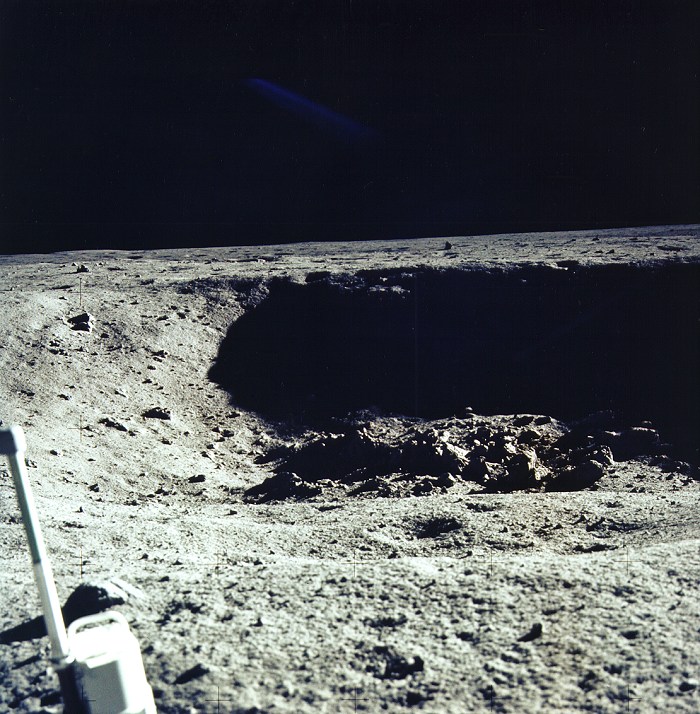On Moon Landing Day, I was already giddy, as my wife and I were expecting our first baby the next month. We listened to the landing on TV, amazed at the onward rush of history. As the news settled in, we went outside and looked up at the actual moon, nearly half full. It was exhilarating to think of there being people up there, and to think that close-up images of the moon were on our TV. It gave me a curious sense of being in two places at once.
The next day, as is well known, Neil Armstrong got his first line slightly wrong, that is, he said, “That’s one small step for (a) man, one giant leap for mankind, ” without saying the “a.” That bothered me, adding to my sense of disappointment with the astronauts’ uninspired and inarticulate remarks. It’s worth remembering that the moon landing came at the tail end of the war in Viet Nam, and many people my age had strongly negative feelings about the military. Ultimately, all twelve of the Apollo moon-walkers were employed by the military or by NASA—which seriously dampened the vibe.
I still wish NASA would send up some civilian writers as astronauts. I myself might be too old by now, but I’m sure that, say, Charlie Stross would be willing to go…
Rudy Rucker is an American science fiction author, mathematician, teacher, and computer scientist. He is perhaps best known for his Ware tetralogy, and frequently writes about scientific or mathematical ideas.










